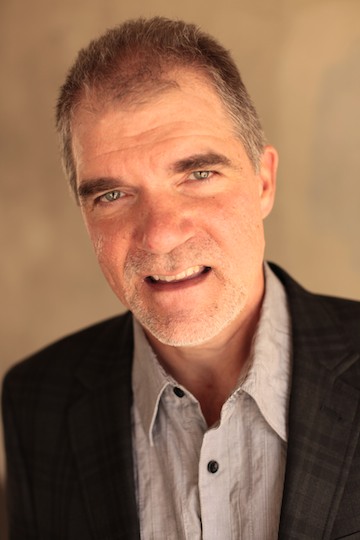Science does not yet have a way of explaining how thoughts and beliefs materially affect our brain and body. This is in part because traditional neuroscience is based on a materialist view of reality. Yet this view—the assumption that the physical world exists beyond subjective perception—has not been proven by mathematics or empirical observation. In fact, reality is known only through sensory interaction, the way our mind relates to light, sound, smell, touch and taste. From a materialist viewpoint, however, these conscious functions are considered secondary to the physical processes of the universe.
This limiting perspective greatly plagues Western medicine. In his book Irreducible Mind, University of Virginia neuroscientist Edward Kelly notes that most scientists avoid the problem of how our subjective mind, or consciousness, acts on the objective physical body. He goes so far as to suggest that we cannot answer this question within the materialistic framework of our current medical system.
Nonetheless, Western medicine and complimentary therapy practices that rely on the healing power of the mind share many common facets. This is particularly self-evident in the controlled testing of new medications, which involves the use of placebos. But what exactly is “the placebo effect?” And what is the relationship of the placebo effect to the healing power of the mind?
THE PLACEBO EFFECT
Even though medical science utilizes placebos in conducting research, it doesn’t understand the phenomenon. The placebo effect is commonly defined as the known tendency for people to improve when given a treatment they believe will be effective. In clinical trials, a certain number of subjects (the control group) think they’re receiving the medication being tested, but are instead given an inactive substance, or placebo. The medication being tested must perform significantly better than the placebo to pass the trial. Yet this common aspect of medical research brings to mind an important question:
“Is the positive response to a placebo an inauthentic form of healing?”
Research on the placebo effect indicates that for many people, simply believing that a therapeutic approach or medication has healing qualities begins creating physical improvements in their body. This implies that thoughts and beliefs are not merely making us feel better, they are altering brain chemistry and physiology.
Some significant studies involving the placebo effect have shown the following:
- A study comparing the effect of a placebo versus the drug L-Dopa in patients with Parkinson’s disease demonstrated that even when taking a placebo, the patients’ nervous system function improved and reduced the effects of the disease (see Huffington Post Article ‘The Placebo Effect: Harnessing The Power Of The Mind’ here)
- A review of randomized controlled trials in which patients were given either antidepressants or placebos demonstrated that approximately 75 percent of the effectiveness of antidepressants was due to the placebo effect (see peer reviewed National Institutes Of Health article here)
- A University of Colorado study found that participants who believed that they had received pain medication produced specific and measurable physiological activity within the neural pathways of their brains similar to taking the medication itself (see peer reviewed National Institutes Of Health article here)
While the placebo effect clearly demonstrates the healing power of the mind, let’s examine the considerable body of research on trance states and complimentary therapies such as hypnosis and meditation, which directly reinforce the ability of thoughts and beliefs to alter brain chemistry and physiology.
TRANCE STATES

Research demonstrates that a common physiology underlies trance states induced by a variety of different procedures.
A wide range of experimental laboratory research on shamanistic practices suggests an operative connection between trance states and healing. Trance states are dominated by slow wave patterns of discharge from parts of the brain including the limbic system, frontal cortex, and hippocampal area, which are optimal for energy, orienting, learning, memory, and attention. A review of eighty-seven parapsychological laboratory studies (see American Anthropological Association citation below) indicates that trance states such as meditation and hypnosis induced relaxation, and that sensory deprivation significantly improved extrasensory perception and psychokinetic performance. These studies also demonstrate that humans have the ability to affect and heal a variety of biological systems through psychokinesis.
Meditation disciplines value trance states as providing the basis for a more objective perception of reality. Yoga traditions indicate that healing and other psychic abilities are a by-product of spiritual development which involve direct and profound alterations of consciousness. A large body of research exists suggesting that trance state healing and well-being practices are psychobiologically based. The empirical evidence includes the universal nature of such practices, the psychobiological characteristics of trance states, and the functional relationships and association of trance with the abilities of healing and divination. (See ‘Shamans and Other Magico-Religious Healers: A Cross-Cultural Study of Their Origins,’ published on behalf of the American Anthropological Association [PDF], here).
HYPNOSIS & MEDITATION
Numerous scientific studies have been published confirming clinical hypnosis as a viable and effective intervention for alleviating chronic pain with cancer and a variety of other conditions (see Medical Hypnosis & Hypnotherapy, Mayo Clinic Reports here). These randomized and controlled studies, along with medical reports, reviews, and a sizable amount of literature in the fields of health and alternative medicine, indicate the complimentary benefits of hypnosis in facilitating healing by countering stress, enhancing immune system responses, and empowering patients to actively participate in their wellness process.
The Mayo Clinic has used hypnosis for pain control and other medical applications for over a century. And since 1995, the National Institutes of Health have recommended hypnotherapy as a treatment for chronic pain.
“Hypnosis is safer than virtually any medication any of us doctors use.”
∼ David Spiegel, M.D., Stanford University, School of Medicine
As for meditation, over 1500 studies conducted by more than 250 independent research institutes show the practice to be clinically effective for the management of stress, anxiety and panic, chronic pain, depression, obsessive thinking, strong emotional reactivity, and a wide array of medical and mental health related conditions.

Scientific research on meditation has shown enduring changes in baseline brain function demonstrating brain plasticity and its effects on the immune system.
Medical outcomes of 15,000 patients from the Center for Mindfulness Stress Reduction at the University of Massachusetts’ Medical School shows a 35% reduction in the number of medical symptoms and a 40% reduction in psychological symptoms (see Meditation Science Weekly article here).
(The findings of these and other peer reviewed research studies are available in my article: A Review Of The Significant Research On Hypnosis, Meditation & Trance States.)
THE SNAKE OIL MYTHOS
The placebo effect is inherent to medical research and reflects the ability of our thoughts and beliefs to alter brain chemistry and physiology. Trance state healing modalities such as hypnosis and meditation are alternative therapies validated by an impressive and ever-growing body of scientific research. In light of the considerable evidence demonstrating the mind’s influence on the body, one must question how and why derogatory terms such as pseudoscience, woo woo, quackery, and snake oil, among others, have become associated with the healing power of the mind. Where does this skepticism come from? And in what ways does it reflect upon the limiting and materialistic framework of our current medical system?
Historically, much of the disparagement of alternative healing practices, along with the outright opposition to all forms of health care outside the conventional health industry, can be traced to the American Medical Association. The article “A Symbiotic Relationship, The AMA & The For-Profit Health Lobby” published by Think Progress, explores the disturbing evolution of the American Medical Association into a lobbying giant and member services entity—one tethered to the pharmaceutical companies and deeply entwined in the profit-based health industry. Indeed, in 2015 the AMA was the third largest lobbying spender in Washington.
To what lengths do such self-serving politics go? Is it possible that the snake oil mythos, at least in part, is rooted in a disinformation strategy built on fear, uncertainty, and doubt (“FUD”)—one that negatively influences perceptions of alternative and complimentary therapies—thus preserving the interests of the health care industry and upholding its profiteering agenda? Alas, could a systematic and well funded FUD campaign constitute part of the limiting and materialistic framework of our current medical system?
The considerable and credible peer reviewed and published evidence demonstrating the healing power of the mind cannot be ignored, dismissed, or characterized as fraudulent. And perhaps it is medical research protocol itself that bears the most persuasive witness. The placebo effect is part of the efficacy of both Western medicine and alternative therapies, and reflects the power of consciousness to influence the regenerative processes of the human organism. Trance states merely function to positively reinforce this innate mind/body connection, effectively altering brain chemistry and physiology.
©2016 Shawn Quinlivan, C.Ht. & Cathexis Therapeutic Imagery. All Rights Reserved.
Cathexis Therapeutic Imagery specializes in innovative approaches to workplace wellness, mindfulness training, and personal development. Via private coaching, presentations, workshops, training events, and our partnership in the unique online wellness community Your Wellness Room—used by Kaiser Permanente, EFactor and other notable companies—our nationally recognized programs and practices help people and organizations make positive changes. Please call for a free consultation at (818) 512-4371 or contact us via email.


